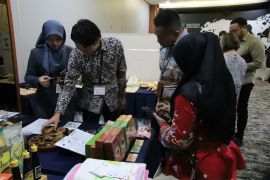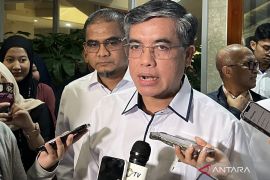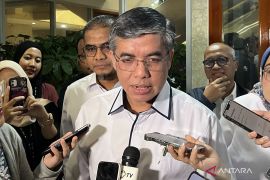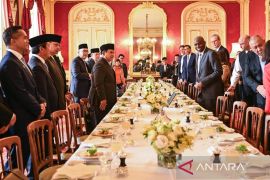All kinds of devices are usually employed to prolong the illusion of youth, for it is usual to consider that aging is simply the natural consequence of inexorable passing of time to be greeted with nothing but regret.
The youth cult would encourage the elderly to think young, as though fancy could delay the inevitable flight of time, but aging is more than an unavoidable biological process that has to be accepted.
Growing older is intended to make one less childish and demanding but more gentle, thoughtful, and considerate; more gracious and sympathetic; and more productive.
However, the elderly people in Indonesia do not have to bemoan their old age, since their role as senior citizens of Indonesia will be optimized.
Gerontologists are concerned that early retirement is an unnecessary waste of manpower and nowhere is this more true than in the life of aging people.
The great temptation following retirement is to follow the pattern of the world and do what one pleases.
Upon retirement, those sufficiently affluent often decide that now is the time to satisfy their own desires and do the things they had always wanted to do.
They often embark on a program of travel, sightseeing, entertainment, and other forms of self-pleasing.
However, other less affluent elderly may spend their time in frustration, bemoaning their fate, envying others, and languishing in self-pity.
As a matter of fact, aging can be the most productive period of life and not a burden to the state but as a buffer for development, with the myriad experiences they have.
Accordingly, Social Affairs Minister Idrus Marham has stated that Law No. 13 of 1998 on Elderly Welfare needs to be revised to optimize the role of senior citizens.
Observing National Day for Elderly People in Yogyakarta on July 5, 2018, the social affairs minister opined that the law that needs to be revised will serve as an instrument for a firm foundation on the position and role of the elderly in future.
The minister reminded the nation that elderly people are not a burden on the public but an asset to the community, considering their contribution to national development.
Hence, the law will position the role of elderly as a buffer of development, as a guardian of the nation`s cultural values, as well as an inspiration and motivator for the younger generation.
The minister has launched a day of elderly resurrection and has also submitted a draft revision of the law on elderly to the House of Representatives` Commission VIII for discussion.
Several provinces in Indonesia have a greater number of elderly people than the national average, and Yogyakarta has the highest elderly population in the country.
Hence, the Ministry of Social Affairs held an event, themed "When the Elderly Prosper, the Society Will Be Happy," to commemorate National Elderly Day in Bantul District, Yogyakarta.
The elderly people, with maturity of life`s patterns and thoughts, are the keepers of values.
Social Affairs Minister Idrus Marham stated that the welfare of elderly people is an important concern for the country and all elements of the nation, as they have a real role to play in the development of the nation and state.
The elderly, as senior citizens, have a lot to offer, so are an asset to the present generation.
Data from the National Economic Census, or Susesnas, of the Central Bureau of Statistics in 2017 showed the number of elderly reached 23.4 million, or 8.97 percent of the total population of Indonesia.
It is estimated that by 2025, the number of elderly will reach 33.7 million, or 11.8 percent, and by 2035, it is forecast to increase by 48.2 million, or 15.8 percent of the total population.
Hence, from the start, the state is concerned about creating prosperity for the elderly, according to the social affairs minister.
The welfare of the elderly is characterized by life and social livelihood, both materially and spiritually, that includes a sense of morality and inner tranquility to enable them to fulfill their needs according to their rights.
To support and strengthen the welfare of senior citizens, the Ministry of Social Affairs organized Social Assistance for Disadvantaged Aged by providing social assistance funds worth Rp200 thousand to each of them per month.
Earlier, the aid system was provided in cash, and starting in 2017, non-cash assistance was offered through designated state banks in the form of Debit Virtual Account cards.
In addition, the Ministry of Social Affairs has extended the participation of Family Hope Program that also includes the elderly.
In the meantime, Coordinating Minister for Human Development and Culture Puan Maharani has stated that in future, there will be several elderly empowerment programs targeting sub-districts, so the elderly become productive.
Maharani noted that the National Day for Elderly People aims to support the senior citizens to remain productive and able to lead a vibrant and prosperous life.
Reporter: Otniel Tamindael
Editor: Otniel Tamindael
Copyright © ANTARA 2018












